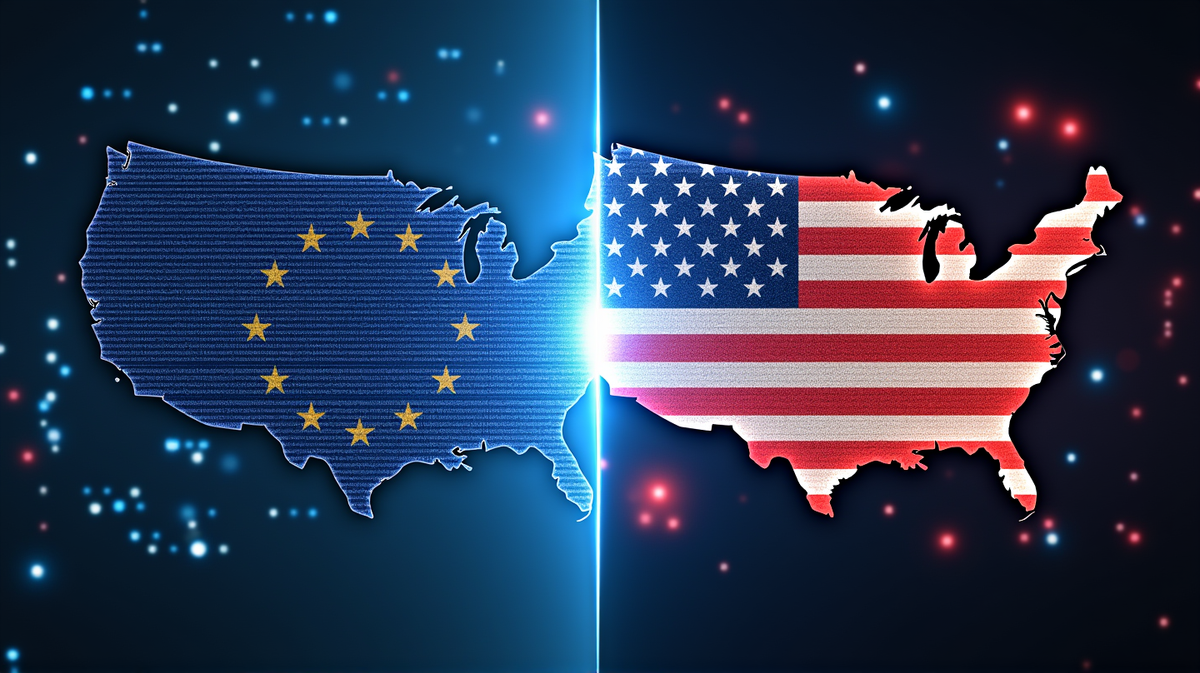EU's New Stance: Cautious Engagement with Washington Unveiled
European trust in the U.S. wanes as the EU adopts a cautious stance, shifting from a partnership of trust to one of cautious engagement.

A Trust Shattered
In an address to the European Parliament, European Commission President Ursula von der Leyen made it clear that trust within the transatlantic alliance has quickly dissipated. Over recent months, events have compelled Europe to reevaluate its relationship with the United States. The Atlantic echoed this sentiment, quoting a stark assessment, “The transatlantic alliance is over.” Such a bold statement could only emerge out of a series of dramatic developments.
Cyber Espionage Concerns
A telling sign of these fraying ties can be traced to the European Union’s recent guidance urging America-bound officials to take significant cybersecurity precautions. Disposable mobile phones and untraceable laptops have now become essential travel companions for EU commissioners visiting the U.S. According to Big News Network.com, this reflects a shift from a longstanding partnership to a relationship characterized by prudent distancing.
Time of Transition
Over several months, the initiative to navigate Washington’s aggressive policies, from the threat of a Greenland takeover to steep tariffs on European imports, rattled long-held diplomatic norms. The introduction of burner phones and basic laptops marks another shift, reflecting the EU’s inclination to safeguard against what they perceive as a potential security threat.
Memories of Spying
The historic shadow of U.S. surveillance looms large. The NSA’s former wide-reaching PRISM program, as revealed by Edward Snowden, forever altered perceptions of U.S. interaction, with echoes of Merkel’s observation that espionage among allies was simply unacceptable still resonating. The EU’s decision to now fortify against U.S. intelligence actions signifies a new stance of independence and caution.
Transatlantic Tensions
Recent tensions are not isolated incidents but part of a broader friction exacerbated under President Trump. Whether dismissing NATO obligations or dismissing diplomatic roles in the Russia-Ukraine conflict, Trump’s position has been anything but collaborative. The EU is now adjusting its approach, focusing on redefining trade agreements with nations like Canada to diversify its economic partnerships, reflecting a significant pivot.
Reassessing Alliances
According to Luuk van Middelaar from the Brussels Institute for Geopolitics, this caution was anticipated. The United States is perceived as an adversary employing illicit means in pursuit of its interests. As such, the EU is increasingly shaping an autonomous path, free from its traditionally heavy dependence on Washington.
In sum, what once was an unwavering union between the EU and the U.S. is transforming into one of caution and individual calculations. This reflective approach stands as a sobering reminder that even the strongest alliances must evolve or risk collapse.





